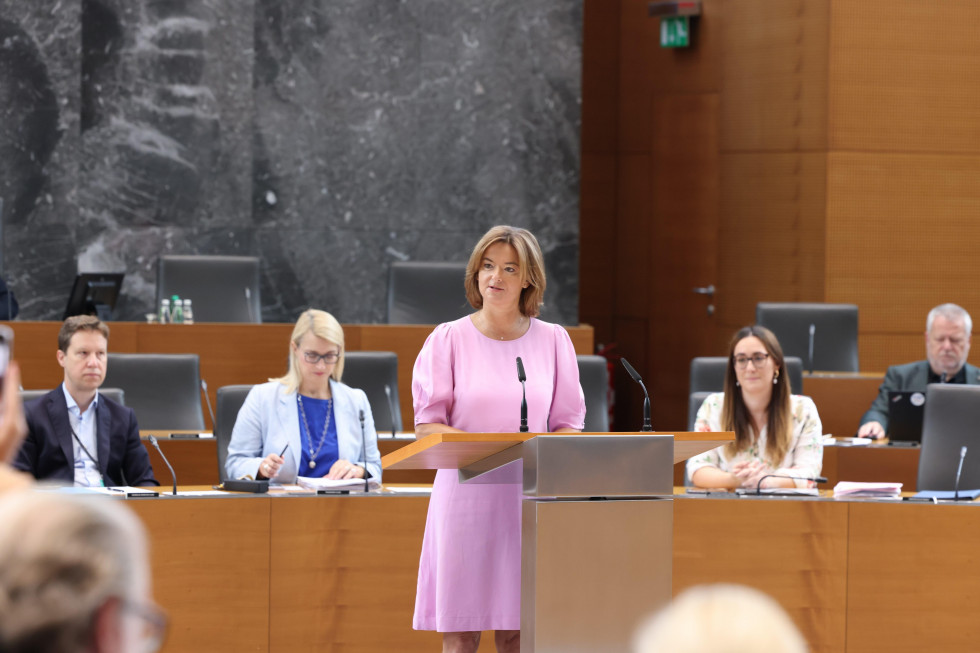Minister Fajon: 'We are actively engaged in the debate on increased use of qualified majority voting in the EU'
"When I first presented myself as Minister in this institution, I promised that I would come regularly to the National Assembly to seek a mandate to take important decisions on foreign and European policy. That is why I am here again today, convinced that this debate will be extremely useful, providing a solid basis for the shaping of Slovenia's views in the future. In the meantime, we have gained another seat in the European house of democracy – the European Parliament – which will certainly strengthen our voice in the EU decision-making process," Minister Fajon told the deputies in her opening remarks.
Qualified majority voting is a decision-making method in the EU Council whereby, in order for a proposal to be approved, at least 15 of the 27 EU Member States, which together represent at least 65% of the EU population, must vote in favour. In this context, Minister Fajon underlined that Slovenia has not committed itself to introducing qualified majority voting, but that, as a responsible EU Member State, it had engaged in the ongoing debate on the subject among the Member States. "Only by participating in the debate on changing the EU's decision-making processes can we take the best possible decisions for Slovenia and our citizens," she added.
She then focused on EU enlargement and the nine potential new members: Ukraine, Moldova, Georgia, Montenegro, Serbia, Bosnia and Herzegovina, Albania, North Macedonia and Kosovo. This means that in the future, the EU could have 36 Member States and it will need to start seriously addressing the issue of decision-making in an enlarged EU. The fact is that the current decision-making rules would make it difficult to manage crises and take strategic decisions in an enlarged EU. We will therefore have to find a balance between increasing the Union's capacity to act and protecting our national interests. "I am aware that there are areas and policies of such paramount importance that we would probably wish to retain the possibility of veto. As to other areas, I would like to see us engage constructively in a debate that must lead to a more effective EU," the Minister said.
She added that the EU Council already decides by qualified majority on most EU policy areas through the ordinary legislative procedure: "Around 80% of all legislative acts are adopted in this way. Qualified majority decision-making is not a new concept, but a well-established method of decision-making in the vast majority of fields of EU activity."
"Slovenia must be present and actively involved in all discussions on the future of the EU. We must not let anything take us by surprise. That is why we have joined the debate among the Member States on the effective use of qualified majority voting, which includes a review and examination of the safeguards that would be available to countries to protect their national interests in potential cases of qualified majority voting. The importance of this discussion is also reflected in the fact that 10 countries are already part of this group, in addition to Slovenia. By working together, we will also ensure that our views and concerns are heard and taken into account as far as possible from the outset," said Minister Fajon in conclusion.


